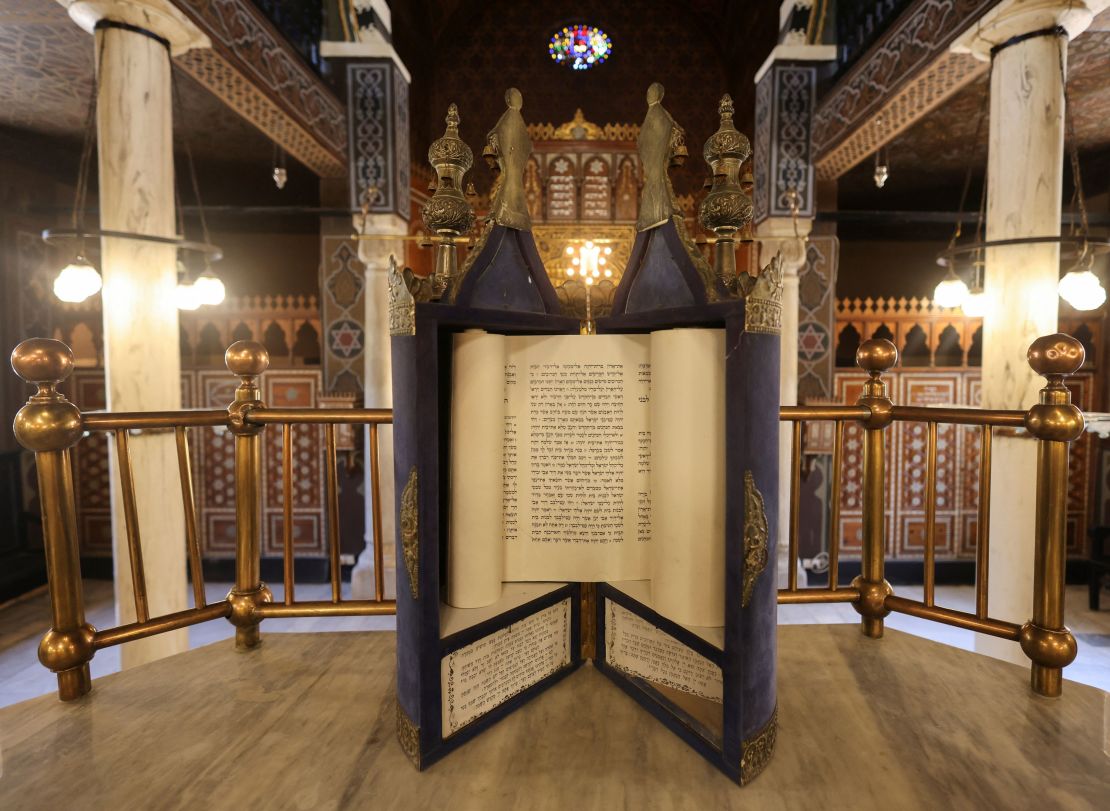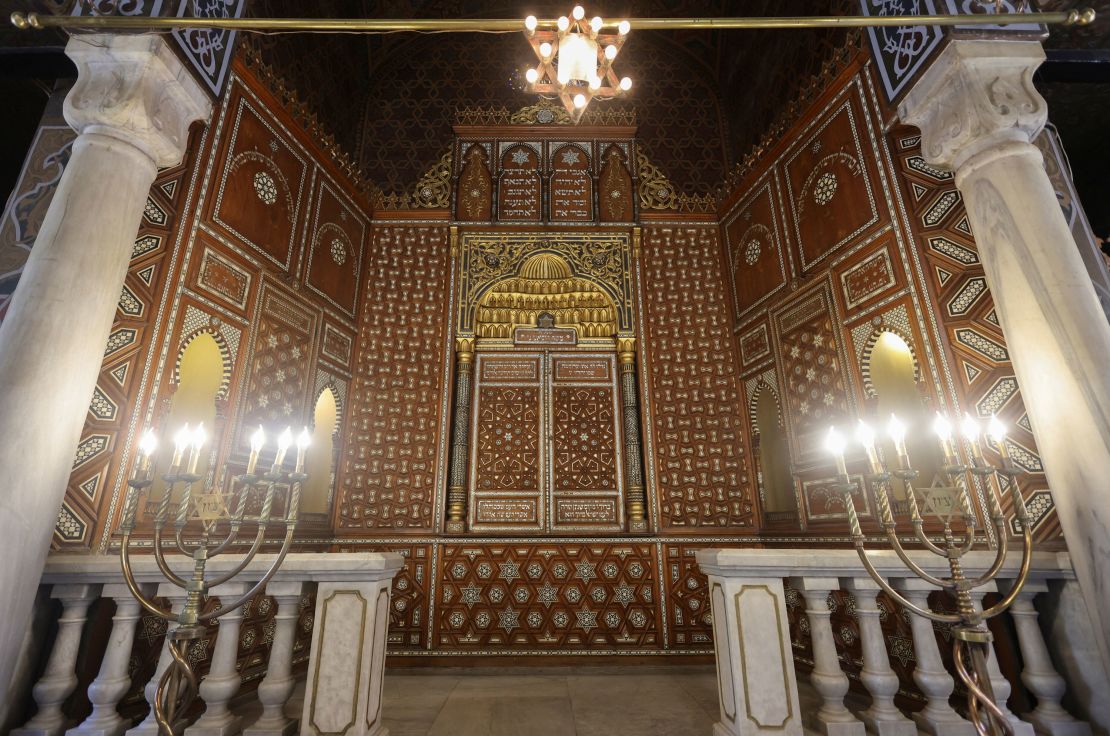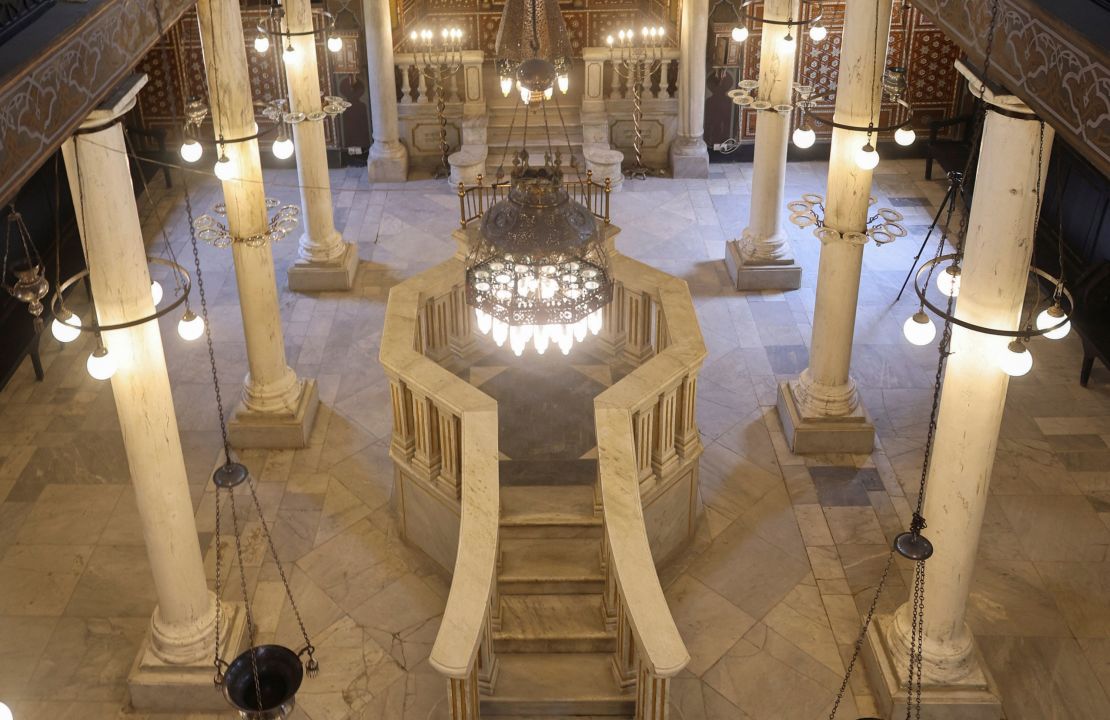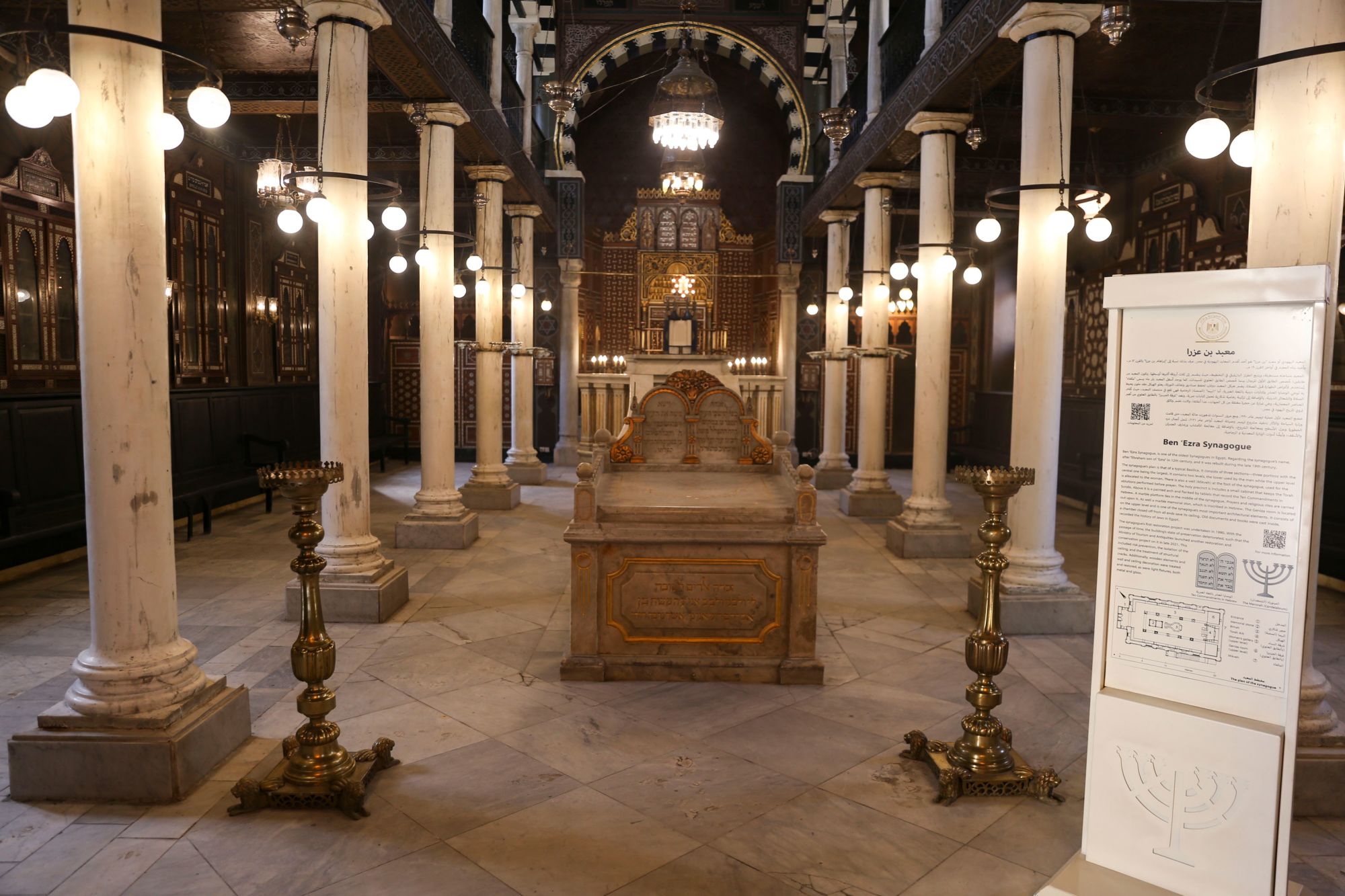Editor’s Note: A version of this story appears in CNN’s Meanwhile in the Middle East newsletter, a three-times-a-week look inside the region’s biggest stories. Sign up here.
Egypt has reopened one of the world’s oldest synagogues and home to the most significant single trove of Jewish manuscripts.
The Ben Ezra synagogue was inaugurated by Prime Minister Mostafa Madbouly on Thursday after a decade of restoration work, according to the Ministry of Tourism and Antiquities (MOTA).
Constructed in the 12th century, the synagogue was rebuilt in 1889 and restored previously in 1982. It was named after Abraham ibn Ezra, a Jewish figure who authored various biblical commentaries during the golden age of Spanish Judaism.
The site has been visited by distinguished Jewish figures throughout history, including Moses Maimonides, one of the most influential Jewish philosophers. Maimonides lived close to the synagogue and worshipped there. The site of the synagogue is believed by some to be where the biblical prophet Moses prayed to God.

The synagogue was also where the single most important selection of Jewish medieval manuscripts was found in the late 19th century, according to the Cambridge University Library, where the documents, known as the Cairo Geniza, are now kept.
The building has basilica-style architecture as it was once a church, according to the ministry.
Its latest restoration — completed by the Drop of Milk Association, an organization that seeks to preserve Egypt’s Jewish heritage — required treatment to protect ceilings, stones and provide insulation.
Egypt’s MOTA has worked to restore several buildings and take on conservation projects in the last few years, said Louise Bertini, executive director of the American Research Centre in Egypt (ARCE).
Bertini said ARCE works closely with the ministry to protect conservation efforts. It awarded Drops of Milk a grant in 2017 to fund their restoration efforts of the remaining synagogues in Egypt, including Ben Ezra, Bertini said.
Egypt’s Jewish population exceeded 80,000 people in 1948, but only about a dozen Jews remain in the country today.

The restoration efforts are largely to improve tourism, according to Bertini. “There’s always an effort to open up new sites or make a current site more accessible,” she told CNN.
Egypt has however come under intense criticism for razing large parts of old Cairo to make way for development projects.
Historic tombs in the oldest parts of capital, called the City of the Dead, are being demolished to make way for roads. Egyptian media reported in June that President Abel Fattah al-Sisi had requested the relocation of graves to a new burial site, the Cemetery of the Immortals.

The move was met with indignation from historians and activists on social media, who saw it as the destruction of Egypt’s heritage and a UNESCO World Heritage Site.
Historian Khaled Fahmy tweeted that “unique treasures will be utterly destroyed, and we shall all bear the shame of having caused their destruction.”
Cemeteries and tombs have already been moved out to make way for bridges and highways.
